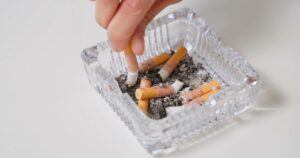Medical review by Heidi Moawad, MD
Summary:
- Cold sores are caused primarily by HSV-1 and are highly contagious. They manifest as tingling, itching, or burning sensations followed by fluid-filled blisters around the mouth. They usually resolve within a few days, even without treatment.
- Common triggers for cold sores include stress, illness, UV exposure, fatigue, hormonal changes, skin trauma, and immune suppression.
- FDA-approved medications like acyclovir, docosanol, and valacyclovir are effective for treating cold sores, especially when applied at the onset of symptoms. Over-the-counter remedies can provide additional relief.
- Stress management, sun protection, a healthy diet, avoiding item sharing, and good sleep hygiene can help manage and prevent outbreaks. Lemonaid Health offers personalized treatment plans and medication delivery, following a consultation with a healthcare provider.
Cold sores are common—but help is available
Cold sores affect millions of Americans, and can cause significant pain and discomfort when they flare up—so it’s useful to know how to treat them. Fortunately, there are many different treatments available for cold sores, so it’s just a matter of knowing which ones are right for you.
Understanding cold sores & oral herpes
Cold sores, or oral herpes, are typically caused by the herpes simplex virus. Here’s a detailed explanation of this virus and how it manifests as cold sores:
Understanding the Herpes Simplex Virus (HSV)
There are two types of HSV:
- HSV-1, which mainly causes oral herpes
- HSV-2, primarily responsible for genital herpes
However, either type can cause sores on the face or genitals.
HSV-1 & cold sores:
Most cold sores are caused by HSV-1. The virus is highly contagious and can be spread through direct contact (like kissing) or indirect contact (like sharing utensils).
Symptoms & appearance
Cold sores often start with a tingling, itching, or burning sensation around the mouth. Small, fluid-filled blisters typically appear on the lips, mouth, or nearby areas.
Virus activation
After the initial infection, the virus can become dormant in nerve tissues. The virus can stay dormant for years (even decades, in some cases), during which no outbreaks or other symptoms will appear.
However, during this time, the virus still has the potential to reactivate and create new cold sores. Recurrent outbreaks may be triggered by various factors (see below) and are usually less severe than the initial outbreak.
Common triggers & factors influencing outbreaks
Numerous factors can trigger cold sore outbreaks, and being aware of these can help with managing and preventing flare-ups:
- Stress: Both emotional and physical stress can weaken the immune system and trigger an outbreak.
- Illness: Colds, flu, and other infections can precipitate cold sore recurrences.
- Sun exposure: Ultraviolet (UV) rays from the sun can activate the virus.
- Fatigue: Lack of sleep or exhaustion can impact the immune system, leading to outbreaks.
- Hormonal changes: Fluctuations in hormones, such as during menstruation, can trigger cold sores.
- Trauma to the skin: Injury or surgery near the mouth area can activate the virus.
- Immune system suppression: People with weakened immune systems, either due to a medical condition or medication, are more susceptible to outbreaks.
Learn more:
- What You Need to Know About Cold Sores
- Understanding Herpes: The Good, The Bad, & What You Need to Know
FDA-approved medications for cold sores
Several antiviral medications are commonly prescribed for cold sores. The following is a list of medications that have been FDA-approved and found to be effective:
Acyclovir cream
- Application: Apply five times a day for four days. It’s most effective when applied as soon as you notice the first symptoms (tingling, itching, or burning).
- Effectiveness: Acyclovir helps to reduce the severity and duration of symptoms. It’s most effective if used at the onset of symptoms.
- Side Effects: Possible side effects include mild pain, burning, or itching at the application site. Systemic side effects are rare since it’s a topical treatment.
Docosanol (Abreva™)
- Application: Apply five times a day at the first sign of symptoms until the lesion has healed. It’s available over-the-counter.
- Effectiveness: Docosanol can speed up healing time and reduce the duration of pain and itching. It works best when applied at the very first sign of a cold sore.
- Side Effects: Side effects are typically mild and can include skin irritation or rash.
Valacyclovir (Valtrex™) for severe cases
- Application: Typically prescribed as a short-term course. The usual dose is 2000 mg taken at the first sign of a cold sore, followed by another 2000 mg 12 hours later.
- Effectiveness: Valacyclovir is very effective for treating cold sores, especially in severe cases. It helps to reduce pain and the duration of symptoms.
- Side Effects: Some people may experience nausea, headache, or dizziness. Rarely, more serious side effects can occur, such as kidney problems, especially if taken in high doses or by those with existing kidney issues.
Over-the-Counter (OTC) cold sore remedies
Over-the-counter options can be an effective first line of treatment for cold sores, especially when used at the earliest signs of an outbreak:
Creams
Hydrocortisone cream can reduce inflammation and itching. Apply these as directed on the packaging—usually a small amount to the affected area.
Ointments
Petroleum jelly can help keep the area moist and prevent cracking or bleeding. Gently apply the jelly to the sores to keep them soft.
Lip balms
Lip balms with SPF can protect your lips from getting cold sores triggered by sun exposure. Regularly apply these balms shortly before going outdoors.
Combination therapies
According to some research, combining antiviral medications with other topical treatments can enhance the effectiveness of cold sore treatment.
For instance, using a prescribed antiviral cream along with a protective ointment like petroleum jelly can both treat the cold sore and protect the affected area. This dual approach helps with managing symptoms and preventing secondary infections.
Preventive measures & lifestyle tips
Making certain lifestyle changes can help prevent and manage cold sores effectively:
- Stress Management: Since stress is a common trigger, techniques such as meditation, yoga, or regular exercise can help manage stress levels.
- Sun Protection: Using lip balm with SPF and avoiding prolonged sun exposure can prevent outbreaks triggered by UV rays.
- Healthy Diet and Hydration: A balanced diet and staying hydrated can support the immune system.
- Avoid Sharing Personal Items: Since HSV-1 can be spread through indirect contact, avoid sharing items like lip balms, towels, and utensils.
- Good Sleep Hygiene: Getting enough sleep strengthens the immune system, reducing the likelihood of outbreaks.
Learn more about Cold Sore treatments provided by Lemonaid Health.
FAQ
Can cold sores be cured completely?
Currently, there is no cure for cold sores. The herpes simplex virus remains in the body for life. However, the right treatment can significantly reduce the frequency and severity of outbreaks.
Are cold sores only contagious when they are visible?
Cold sores are most contagious when blisters are present and just after they burst. However, the virus can still be spread even when there are no visible symptoms, though this is less common.
How long do cold sores typically last?
Without treatment, a cold sore episode can last for about 10-14 days. However, treatments like antiviral medications can shorten this duration.
Is it safe to use cold sore treatments during pregnancy?
Pregnant women should always consult with their healthcare provider before using any cold sore treatments, as some medications might not be recommended during pregnancy.
How much can lifestyle changes prevent cold sore outbreaks?
While lifestyle changes cannot prevent all outbreaks, managing stress, protecting against sun exposure, maintaining a healthy diet, and practicing good sleep hygiene can reduce the frequency of outbreaks.
Are cold sores a sign of a weak immune system?
Cold sores can be triggered by a weakened immune system, but having them does not necessarily mean your immune system is weak. They can occur in anyone who has been exposed to the virus, regardless of their overall health.
Abreva™ is a trademark of GlaxoSmithKline Consumer Healthcare (UK) IP Limited. Valtrex™ is a registered trademark of Glaxo Group Limited












